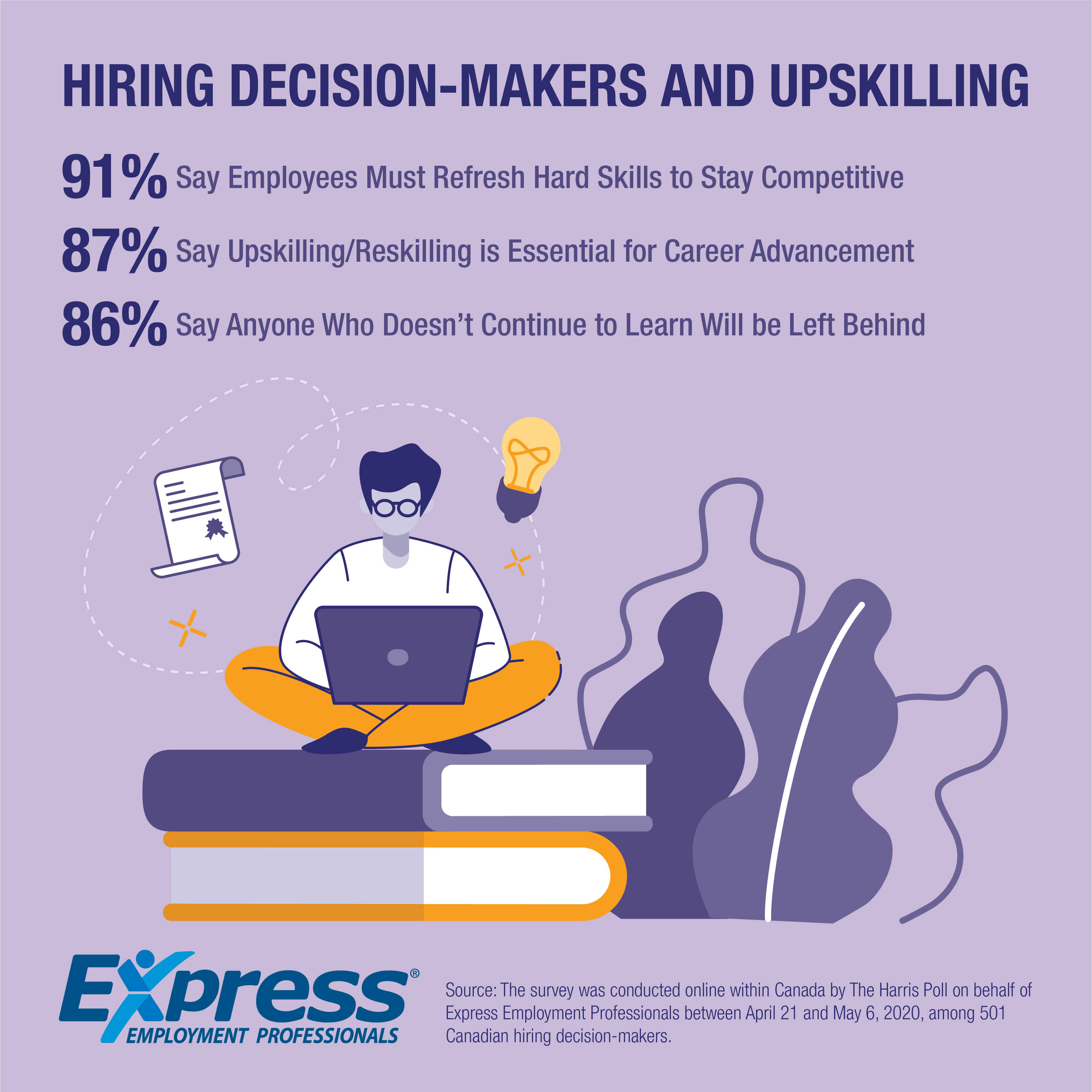Ninety-one percent of Canadian hiring decision-makers say employees must refresh their hard skills to stay competitive in the workforce, while 87% add upskilling/reskilling is absolutely essential for career advancement, according to a new survey from The Harris Poll commissioned by Express Employment Professionals.
Specifically, in today’s labour market, a majority of hiring decision-makers (88%) believe it is critical for companies to reskill existing employees and more than 4 in 5 (83%) think it’s more cost-effective to reskill current workers than recruit or hire new employees.
Despite 80% of hiring decision-makers agreeing their company needs employees who are ready to do new kinds of work, only 45% say their company currently offers courses or programs to help employees expand/upgrade their skills.

“Whether you are an entrepreneur, tradesperson or administrator, keeping your hard skills up-to-date is important for servicing your customers, ensuring your company stays competitive and remaining employable for the next time you are job searching,” said Bruce Hein, Express franchise owner in Sarnia, Ontario.
Sid Gupta, Express franchise owner in Burnaby, British Columbia, agrees.
“To remain viable in the market for growth, we need to constantly remain upskilled. We need to find the opportunities to be more valuable to the company, which brings opportunities for career growth as well,” Gupta said.
“It’s important to invest in educating yourself, not only to ensure that you open doors for future advancement but also to ensure that your position remains critical for the business,” said Brent Pollington, Express franchise owner in Vancouver, British Columbia.
Pollington isn’t surprised that only 45% of companies offer courses or programs to help employees expand/upgrade their skills; he sees two reasons for this.
“The first reason is that many employers feel that upgrading and expanding skills should be driven by the employee,” Pollington said. “I think it should be less about the company seeking to motivate the employee and more that the employee should approach their manager and seek guidance on what they can do to personally develop to take further steps in the company.”
“The second reason is that companies may fear losing an employee to the competition after they’ve already invested in them,” Pollington said. “This happens all the time.”
Hein thinks that the number of companies investing in this area is higher than the poll suggests.
“I believe more than 45% of companies likely invest in reskilling/upskilling for employees but might not realize it because it’s not a formal program or policy,” Hein said.
Express franchise owners agree that different industries will have different expectations on upskilling and reskilling.
Gupta notes that employees in IT, medical, biotech and to some extent, industrial, require ongoing learning. However, he thinks that “employees should instill a behavior to upskill all the time; it should be part of an employee’s growth strategy.”
Hein notes that because of the high unemployment rate due to the pandemic, jobs are much more competitive.
“Having a new course or certification to add to your resume will help you stand out in a crowded job market,” Hein said.
“With the continual rapid development of almost every aspect of the workforce, employees can’t expect their knowledge from several years ago to still be fully applicable,” Express CEO Bill Stoller said. “Those who continue to be lifelong learners are the ones who will prove to be true assets to companies.”
Survey Methodology
The survey was conducted online within Canada by The Harris Poll on behalf of Express Employment Professionals between April 21 and May 6, 2020 among 501 Canadian hiring decision-makers (defined as adults ages 18+ in Canada who are employed full-time or self-employed or have been laid off, furloughed, or given a zero hour schedule in the past 60 days but worked full-time or were self-employed full-time prior, work at companies with more than 1 employee, and have full/significant involvement in hiring decisions at their company). Data were weighted where necessary by company size to bring them into line with their actual proportions in the population.

No comments yet.